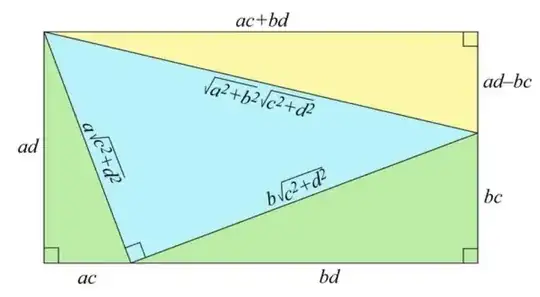Yesterday, I posted this question, and got that if $a$, $b$ and $c$ are in the form $$a=k(m^2-n^2+2mn)$$ $$b=k(n^2-m^2+2mn)$$ $$c=k(m^2+n^2)$$ where $m$ and $n$ are natural numbers, $a$, $b$ and $c$ will satisfy the equation $$a^2+b^2=2c^2$$ Also every $a$, $b$ and $c$ satisfying this equation could be written in terms of $m$ and $n$ as in the three equations mentioned above.
Now, is it possible to write $a$, $b$, $c$, $d$ and $x$ of the equation $$a^2+b^2=c^2+d^2=2x^2$$ to be written in terms of some other variable as for the $a^2+b^2=2c^2$ equation?
So, I need a set of equations for which I can plug in any natural numbers and generate $a$, $b$, $c$, $d$ and $x$ which satisfies my equation. And every natural numbers $a$, $b$, $c$, $d$ and $x$ satisfying my equation should satisfy the set of equations.
When I tried, I didn't see any clear way to do it as there is two equal symbols.
I would like to get the proof with the answer. (Otherwise I won't know if every pairs of number satisfying the equation will satisfy the set of equations in the answer.)
If you don't get the answer, any comment that helps to give an insight to solving the problem is also really appreciated.
